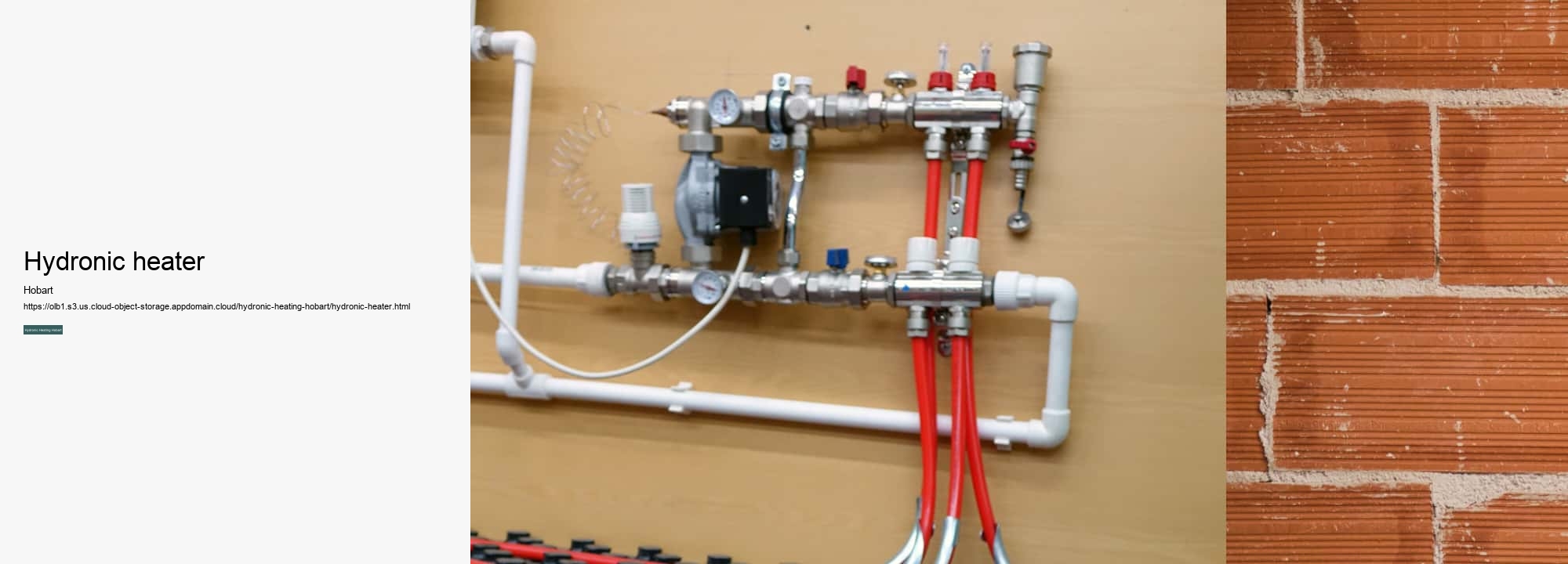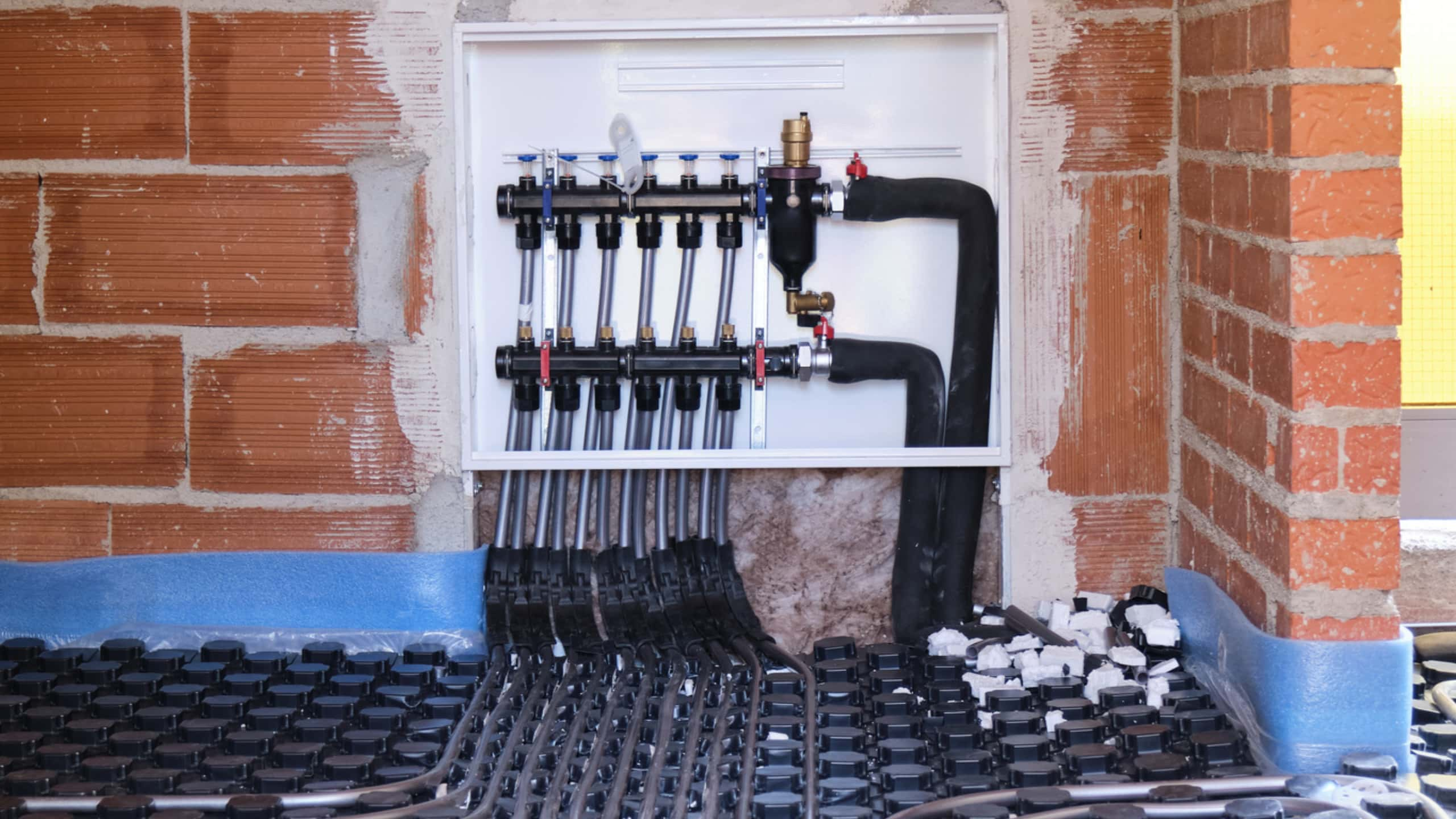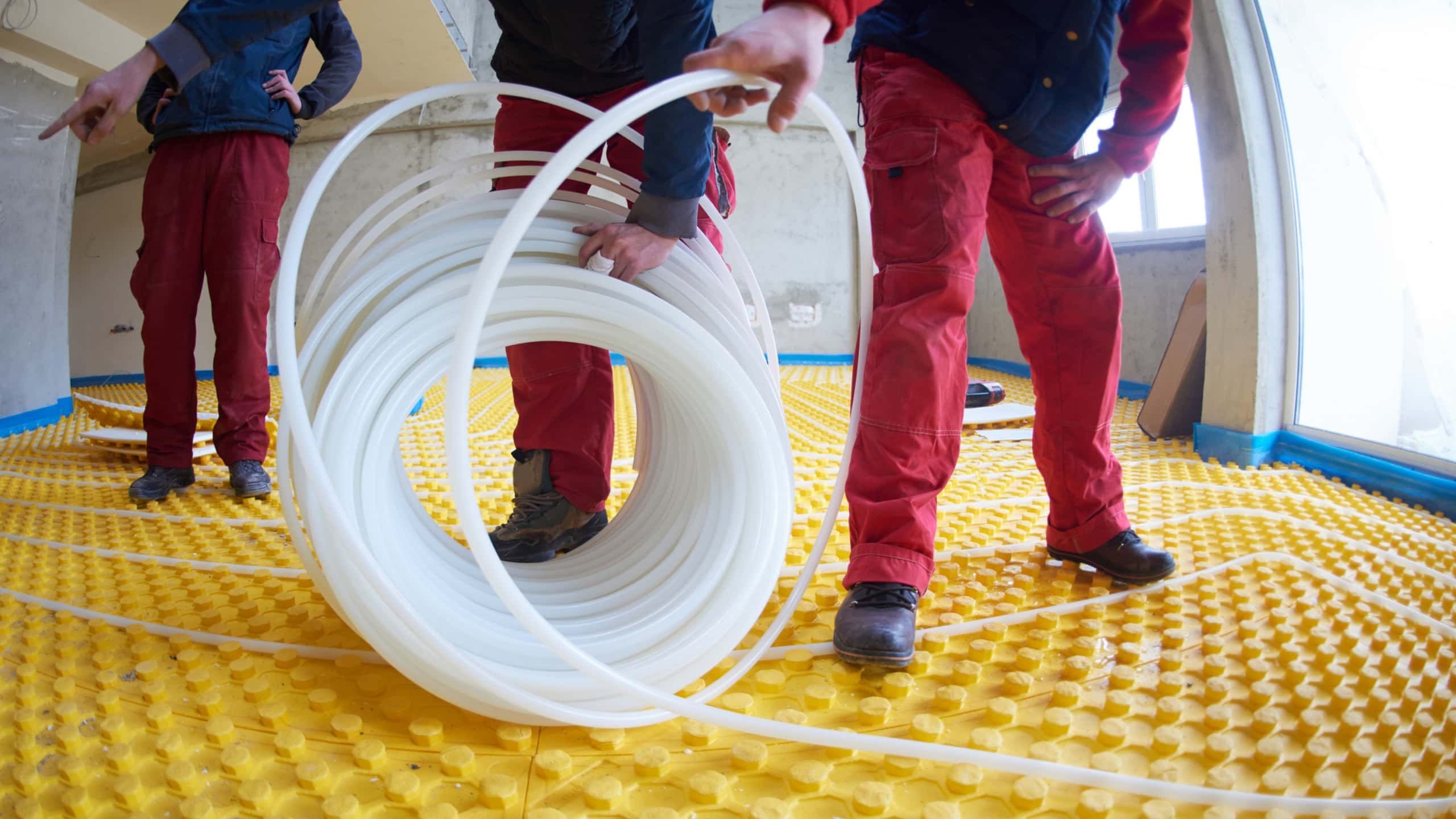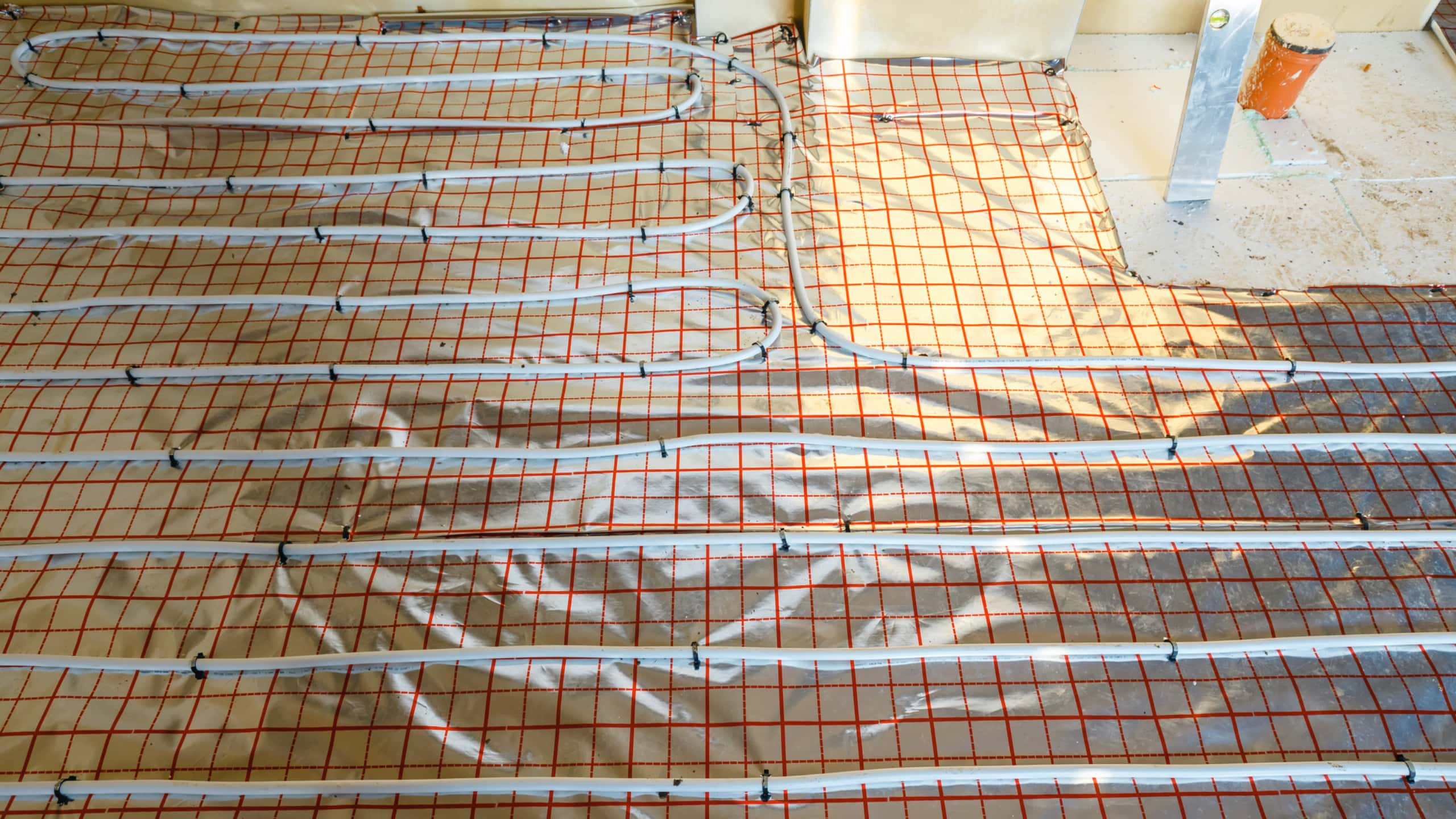

However, there are some important things to consider before making the switch. If there are any issues with performance or leakage during this time period then make sure to address them immediately before continuing further use of the system. By investing in a hydronic heating system for your home, you'll be able to enjoy cleaner, healthier air throughout the year. This process involves calculating the amount of energy that will be lost from a structure due to conduction, convection, and radiation.
How to Enjoy Warmth and Comfort with Hydronic HeatingEnsuring warmth and comfort in your home can be a challenge during the cold winter months. The cold weather often leads to high energy bills as the heater is running constantly in order to keep your house warm. In addition, hydronic heating can be used in combination with other systems such as air conditioning or solar power to further enhance energy savings.
Look for models that meet Energy Star standards or have been certified by other organizations as being energy-efficient. Additionally, it's important to consider the type of heat source that will be implemented, as well as any potential restrictions or regulations governing its installation. Quiet Operation: Unlike traditional furnaces which can be quite loud during operation, hydronic systems are almost silent as there are no noisy fans involved in their operation.
With continued research and development into this field of engineering, we may soon see even further improvements that will benefit us all even more! In addition to installation of a hydronic heating system, regular maintenance is essential for optimal performance. Firstly, consider where the boiler will be located - it should be placed in a part of the house that is well ventilated and away from any combustible materials.
Working with a professional in this area is essential to ensure the system works effectively and efficiently. So if you're looking for ways to beat winter chills and keep energy bills low this year, consider investing in a hydronic system.
It works by circulating hot water through a series of pipes that are installed beneath the floor, behind walls, or in the ceiling. Pipes connect all these components together, while expansion tanks act as pressure regulators and prevent pressure from building up too high inside the system.
In conclusion, if you want a safe and energy-efficient way to keep your home warm during colder months, have you considered hydronic heating? Finally, by using low-flow pumps and specialised radiators or baseboard heating units that provide efficient heat transfer from hot water pipes into air spaces, you can significantly reduce energy consumption while still achieving great results in terms of warmth and comfort inside your home. So if you're looking for an energy-efficient way to keep your home cozy this winter, then consider investigating hydronic heating systems today! The pump is the heart of the system; it circulates the heated liquid through the system's network of pipes. Not only will it save you money in the long run but it will also help protect our environment by reducing greenhouse gases produced from burning fossil fuels. So if you're looking for ways to improve the indoor air quality at home while saving money on energy costs then look no further than a hydronic heating system.
This means choosing a certified technician who knows how to set up the system correctly and can guarantee its efficiency over time. What Is the Future of Home Comfort - Discover Hydronic HeatingThe future of home comfort is an exciting one, with the potential for improved convenience and energy efficiency through hydronic heating. It works by circulating hot water through pipes located in the walls and floors of your home or business. This will help ensure that you get an appliance that uses less energy and provides greater cost savings over time. With just a few simple steps, you'll be on your way to enjoying the cozy warmth of a hydronic system.
Once everything is ready to go, begin placing each component in its designated spot according to the manufacturer's instructions. Benefits of Hydronic HeatingHydronic heating is a great choice for many homeowners looking to stay warm in the winter. By following these simple tips you can make sure you get optimal performance from your hydronic heating system year after year. Once this has been done, all of the necessary pipes and fittings must then be connected from the boiler to each radiator in order to complete the circuit. Here are some of the key advantages that hydronic heating provides:Cost Savings: Hydronic systems can save you money on energy bills over time as they require less energy to operate than traditional gas furnaces or electric heaters.


By understanding how these factors interact with one another, homeowners can make informed decisions about their heating system installation. It is important to understand all of the components involved in the installation process before attempting any work. In addition, you may be eligible for tax credits and rebates when installing this type of system, further reducing your costs. One of the most frequent causes of issues is an obstruction in the pipes or system components.
With its cost savings and eco-friendly benefits, it's easy to see why this type of system has become increasingly popular among homeowners in recent years! For example, an expensive unit may offer more bells and whistles than a cheaper model. However, with a bit of knowledge and some simple maintenance, you can ensure that your system runs optimally.
You'll also want to regularly maintain your equipment with tune-ups and filter changes so it keeps functioning as it should. There are various advanced technologies that can be utilized for this purpose, such as high-efficiency boilers, radiant floor heating systems, and solar thermal energy collectors. Next, assemble all the necessary components for the installation. The key to saving money on your heating bill lies in selecting an energy-efficient model for your home. Furthermore, since they don't burn any fuel, there is no risk of carbon monoxide poisoning either. As you can see, investing in a hydronic heating system has numerous advantages that go beyond just providing consistent heat throughout the colder seasons.
Plus the even distribution of warmth ensures you won't have any cold spots in your house either! Reap the Rewards with a Smart Investment in a Hydronic Heating SystemInvesting in a hydronic heating system can be a smart move for many homeowners.


With proper care, you can enjoy all the benefits of hydronic heating while saving money on energy costs in the long run. If any problems are detected during these inspections they should be addressed immediately in order to avoid costly repairs down the line. There are models available at various price points and it pays to shop around before settling on one option or another.
With such an effective method of keeping your home warm and reducing energy costs over time, you are likely to see an increase in property value too. Additionally, you should also consider installing smart thermostats which allow you to control temperatures more precisely so you're not overspending on energy costs unnecessarily.
Be aware that there may need to be some alterations made to existing walls or ceilings if pipe runs are different from your current setup. You should also look at energy star ratings for each model before making a final decision. This means that you don't have to worry about turning off the heater when you're not home - it will stay at a comfortable temperature all day long. It can be an efficient and cost-effective way to keep your home cosy all year round. By taking all these factors into account, homeowners can rest assured that their hydronic heating systems will provide years of reliable performance. Fortunately, there are several options available to meet these requirements.
Improved Air Quality: The lack of air ducts with hydronic systems also means there is no dust or allergens being circulated throughout your home, which helps improve indoor air quality. By using hot water rather than air to heat a home, these systems can provide a more consistent and comfortable temperature in the house. Different Components Used in Hydronic Heating SystemsHydronic heating systems are an efficient and cost-effective way to heat a home. The water is heated by either a boiler or solar panels and circulated throughout the house using pumps and valves. It works by passing heated water through pipes located throughout the home, which then radiates heat into the living spaces.
By taking these factors into account when selecting a boiler for your home's hydronic system, you can ensure you get the most suitable appliance for your specific needs while staying within your budget constraints. Lastly, it is an environmentally-friendly option as it does not produce any hazardous emissions and uses renewable sources such as solar power to generate heat. Finally, choose components carefully so that they work together efficiently; select quality valves, pumps and controls for optimum performance. These steps will ensure that your family has access to clean indoor air all year round! All these components work together in order to provide comfort and warmth for your home in a safe and energy-efficient manner.
By using hot water instead of air, you can enjoy more consistent temperatures and increased energy efficiency. Hydronic systems use less electricity than most traditional heating methods, meaning that over time your utility bills may decrease drastically. However, with the proper instructions and tools, it can be done quickly and efficiently. The boiler must be correctly sized for the home or office space that will be heated. If there is an obstruction, air bubbles may form, preventing proper circulation of water through the system.
